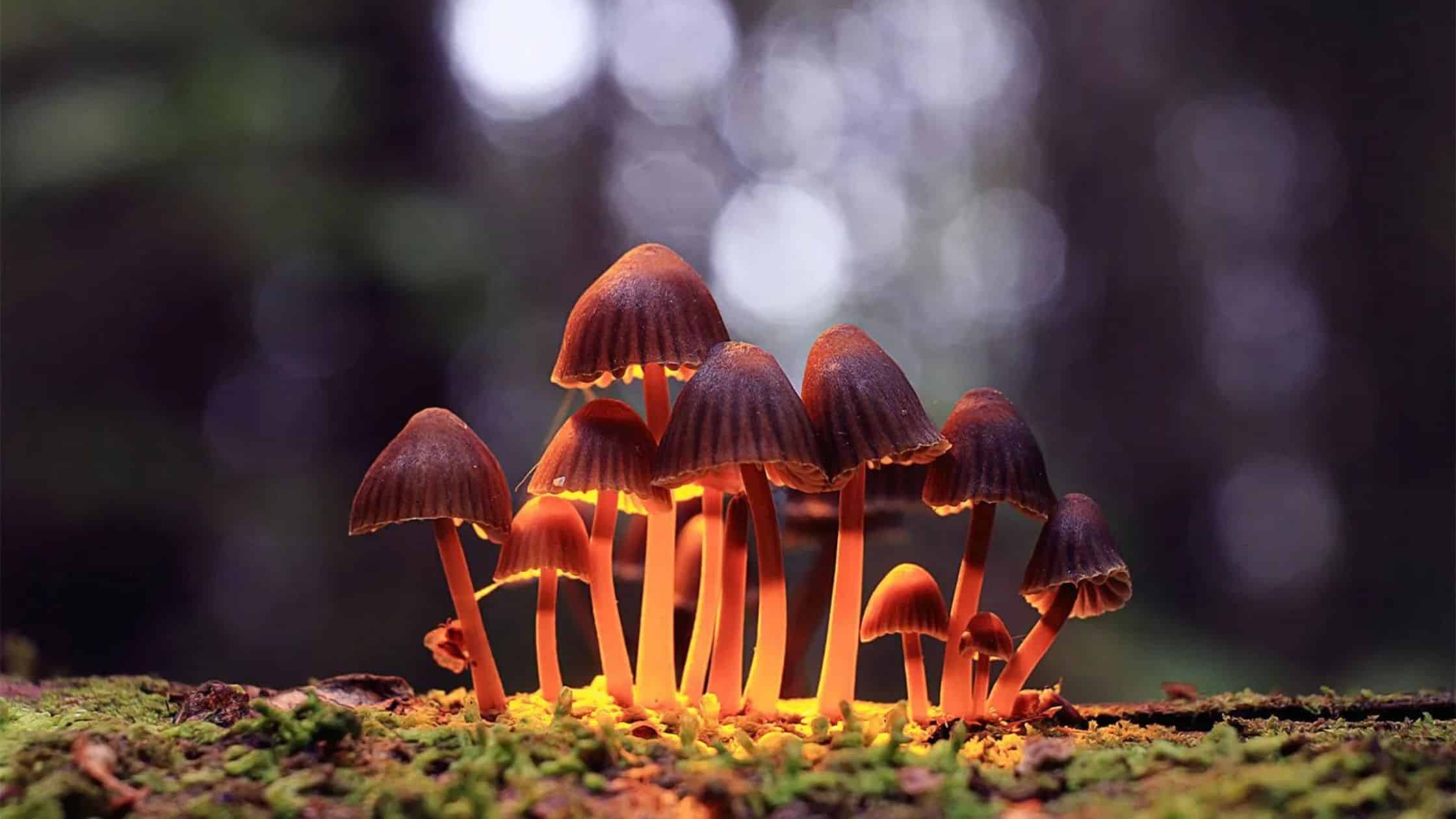Hallucinogens, frequently labeled as psychedelics, encompass a wide range of substances recognized for their capacity to alter consciousness. From the vivid colors of LSD to the profound journeys elicited by ayahuasca, these compounds have fascinated humanity for ages. Yet, beyond the allure of their effects lies not only fleeting euphoria but also the possibility of both immediate and enduring repercussions that demand investigation, including considerations regarding hallucinogenic mushroom drug tests.
Curious About Hallucinogens’ Effects?
Understanding Hallucinogens
Before exploring the short and long-term impacts of hallucinogens, it’s essential to understand their nature. Hallucinogens’ short-term effects predominantly interact with serotonin receptors in the brain, triggering significant changes in perception, mood, and cognition. Although the specific mechanisms differ across various types of hallucinogens, the outcome is a departure from ordinary reality into a domain of intensified sensory encounters and introspective revelations. Additionally, it’s worth considering the relevance of the hallucinogenic mushrooms drug test in this context.
How are Hallucinogens Abused?
Hallucinogens are abused in various ways, often reflecting the diverse forms in which these substances are available and consumed. Here are some common methods of hallucinogen abuse:
Oral Ingestion
Many hallucinogens, such as LSD (lysergic acid diethylamide) and psilocybin mushrooms, are typically ingested orally. They may be consumed in their natural form, like mushrooms, or in the case of LSD, as a liquid dropped onto absorbent paper or as small tablets known as “blotters.”
Smoking
Some hallucinogens, such as DMT (dimethyltryptamine) and Salvia divinorum, are smoked for a more rapid onset of effects. DMT is often found in a crystalline form and can be vaporized and inhaled, while Salvia divinorum leaves are dried and smoked similarly to marijuana.
Inhalation
Certain hallucinogens, like nitrous oxide (laughing gas) and some volatile solvents, can be abused by inhalation. Users may inhale the vapors directly from a container or through a balloon or bag to achieve a rapid onset of effects.
Injection
While less common, some hallucinogens can be injected intravenously for a more immediate and intense high. Examples include ketamine and certain synthetic hallucinogens. Injection drug use carries significant risks, including the transmission of bloodborne diseases and potential damage to veins and organs.
Rectal Administration
In rare cases, hallucinogens’ short-term effects may be administered rectally to bypass the digestive system and achieve a faster onset of effects. This method is less common but may be preferred by some individuals seeking a more intense experience.
It’s crucial to acknowledge that hallucinogens’ short-term effects are frequently misused in social settings or recreational environments, where individuals may pursue altered states of consciousness, heightened sensory experiences, or spiritual insights.
Nevertheless, the misuse of these substances can result in unpredictable and potentially hazardous outcomes, including overdose, psychological trauma, and long-term adverse effects on mental health and well-being. Additionally, considering the relevance of hallucinogens short-term effects are paramount in addressing the misuse of these substances.
Furthermore, the legality of hallucinogens varies widely depending on the substance and jurisdiction. While some hallucinogens are classified as illegal drugs in many countries, others may be legally available for religious or therapeutic purposes in certain contexts.
The short and long-term effects of Hallucinogens
Mentioned below are some of the effects of hallucinogens that are short and long-term,
Hallucinogens short-term effects
Hallucinogens’ short-term effects can be enchanting. Users often describe vivid visual hallucinations, enhanced sensory perception, and a profound sense of interconnectedness with the universe. These experiences, commonly called “trips” can be accompanied by euphoria, introspection, and profound spiritual awakening.
Moreover, hallucinogens have demonstrated potential in therapeutic contexts, with studies indicating their effectiveness in addressing conditions like depression, anxiety, and PTSD. When administered under the supervision of qualified professionals, individuals may undergo profound experiences leading to new insights and emotional healing. Additionally, it’s relevant to consider the significance of hallucinogenic mushroom drug tests in research and therapeutic applications involving these substances.
Hallucinogen’s short-term effects can vary widely depending on factors such as dosage, individual susceptibility, and the specific substance ingested. Common experiences include:
Visual and auditory hallucinations
Users may perceive vivid, colorful visuals and hear distorted or amplified sounds.
Altered perception of time and space
Time may appear to slow down or stretch, while the sense of spatial awareness may become distorted.
Intense emotions and mood swings
Hallucinogens can induce euphoria, introspection, or profound anxiety and fear.
Changes in sensory perception
Users may experience heightened sensitivity to touch, taste, and smell or, conversely, a numbing of sensory input.
While these effects can be exhilarating for some, they can also be overwhelming and distressing for others, especially in uncontrolled or unfamiliar settings.
Hallucinogens long-term effects
A cautionary note accompanies the appeal of hallucinogens. Extended use or high doses can result in adverse effects, both psychological and physiological. Individuals who use these substances chronically may encounter ongoing hallucinations, paranoia, or even psychosis, especially if they have a predisposition. Moreover, regular usage can lead to tolerance, reducing the substance’s effectiveness and prompting users to raise their dosage, thereby heightening the likelihood of negative consequences. Additionally, considering the relevance of hallucinogens’ long-term effects can provide valuable insights into the effects and usage patterns of these substances.
Furthermore, while hallucinogens themselves are not typically addictive in the same manner as other substances, such as opioids or stimulants, psychological dependence can still develop. Users may come to rely on these substances as a means of escape or self-exploration, leading to compulsive patterns of use that interfere with daily functioning.
The hallucinogen’s long-term effects are less well-understood compared to other drugs, largely due to limited research in this area. However, chronic use or repeated exposure to hallucinogens may lead to:
Persistent hallucinogen perception disorder (HPPD)
Some individuals may experience recurrent visual disturbances or flashbacks long after the drug has worn off.
Psychological distress
Prolonged use of hallucinogens can contribute to mood disorders such as depression and anxiety, as well as exacerbate underlying mental health conditions.
Flashbacks and trauma
Certain experiences during a hallucinogenic trip may leave a lasting impact on the individual, leading to recurrent flashbacks or even psychological trauma.
Disrupted cognition and memory
Chronic use of hallucinogens may impair cognitive function and memory, although the extent and reversibility of these effects remain unclear.
Withdrawal Symptoms of Hallucinogens
Unlike many other drugs, hallucinogens are not typically associated with physical dependence or withdrawal symptoms. However, some individuals may experience psychological withdrawal symptoms hallucinogens’ short term effects and long-term effects which include,
Cravings
Strong desires or longings to revisit the sensations caused by hallucinogenic substances.
Mood disturbances
Fluctuations in mood, ranging from irritability and agitation to depression and apathy.
Sleep disturbances
Difficulty sleeping or experiencing vivid dreams and nightmares.
Cognitive effects
Impaired concentration, memory problems, and difficulty processing information.
It’s important to note that hallucinogen’s short-term effects and long-term effects are generally mild compared to substances like opioids or alcohol. Nonetheless, seeking support from healthcare professionals or substance abuse counselors can be beneficial for individuals experiencing difficulties during the withdrawal process.
Hallucinogens and Drug Testing
Within the domain of drug testing, hallucinogens pose a distinctive challenge. Unlike numerous other illicit substances like cannabis or cocaine, hallucinogens aren’t typically part of standard drug screenings. Nonetheless, specialized tests such as urine or hair follicle analysis can identify the presence of these substances within a specific timeframe following ingestion. Additionally, exploring the relevance of hallucinogenic mushroom drug tests can offer insights into detection methods and their implications.
For example, psilocybin, the psychoactive compound found in hallucinogenic mushrooms, can be detected in urine for up to 24 hours after ingestion, while hair follicle tests may reveal its presence for a more extended period, depending on the individual’s hair growth rate.
Tired of fighting addiction and mental health struggles?
Ignoring both deepens the struggle. Our holistic approach—detox, therapy, and medication-assisted treatment—can help you heal. Take the first step today.
FAQs
1. Are hallucinogenic drugs that distort moods thoughts and senses?
The term hallucinogen encompasses a variety of drugs commonly known as “psychedelic” drugs. Although the effects of these drugs differ significantly, they all alter individuals’ perception of sight, sound, taste, smell, and touch while also influencing their mood and cognition.
2. What are the effects of hallucinogens in AP Psychology?
It stimulates neural activity and bodily functions. Physiological responses involve dilated pupils, elevated blood pressure, heightened blood sugar levels, and a subsequent reduction in appetite paired with heightened energy levels. LSD is not classified as a stimulant due to its hallucinogenic properties.
3. Do hallucinogens distort an individual’s perception of reality?
The consumption of these medications can interfere with a person’s capacity to reason and communicate logically. In some instances, they may even lose touch with reality, resulting in peculiar or risky actions. Hallucinogens such as LSD and psilocybin can trigger intense emotional swings and distort the perception of sensory experiences, occasionally inducing feelings of fear and unease.
Conclusion
The final say, the effects of hallucinogens, both short and long-term, are complex, involving immediate euphoria and possible enduring consequences. While these substances offer potential therapeutic benefits and opportunities for personal development, their misuse can result in adverse outcomes that require careful attention. Additionally, examining the relevance of hallucinogenic mushroom drug tests can provide valuable insights into the impact and usage of these substances.
Moreover, in the context of drug testing, hallucinogens pose unique challenges due to their limited inclusion in standard screenings and the varying detection windows associated with different testing methods.
Reach out to Avisa for guidance and assistance on the journey toward recovery and well-being. Together, we can promote a healthier, more informed approach to substance use and support individuals in achieving their goals for personal growth and recovery.










